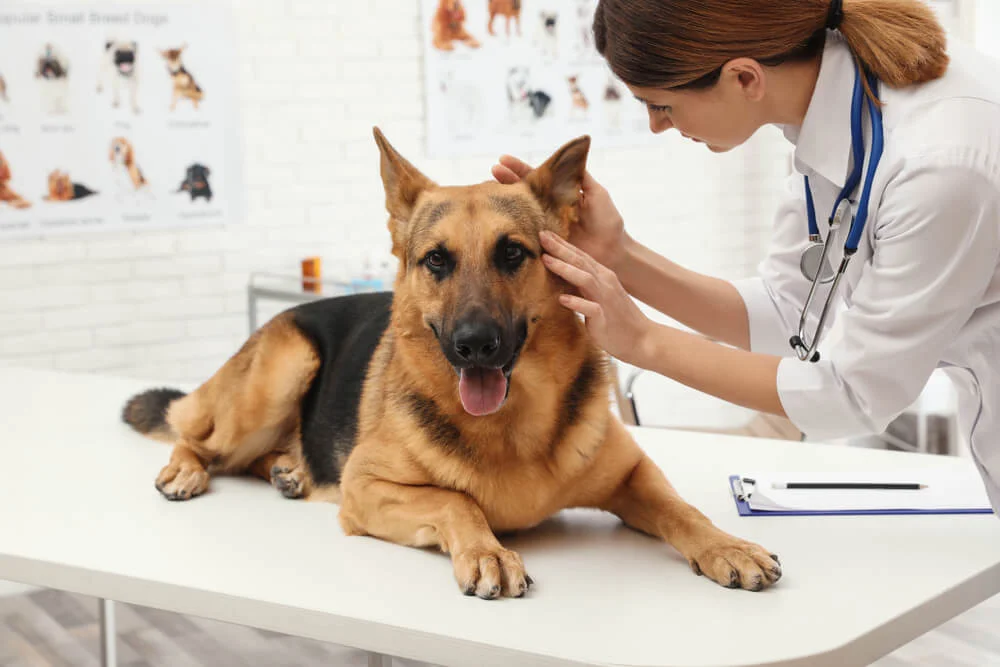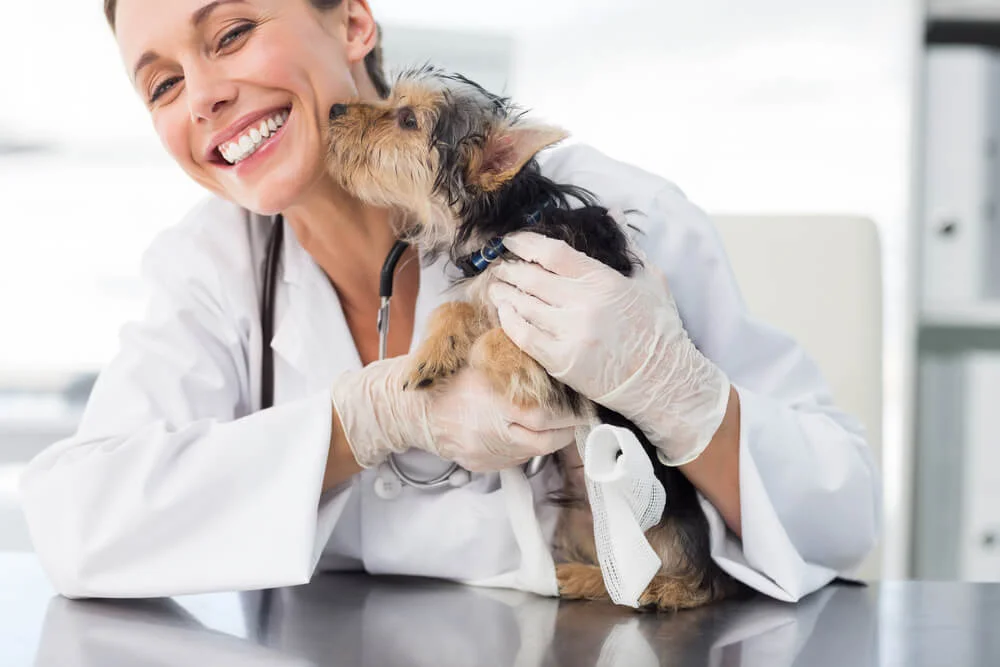
Your dog may be a seasoned pillager who regularly raids the trash. You may find this amusing, but be careful! Eating rubbish is one of the risk factors for a painful condition called “gastritis”.
What is Gastritis?
The inner surface of the stomach has a “stomach lining” that secretes digestive juices. Gastritis refers to inflammation of the stomach lining (whereas gastroenteritis refers to the inflammation of the intestines). Gastritis can be acute or chronic. Acute gastritis occurs suddenly and causes severe signs, whereas chronic gastritis occurs gradually and lasts for a longer time.
You may wonder about how you can spot gastritis in your dog, how it can be managed, and how serious it is. Read on to find out more!
What are the signs of gastritis in dogs?
As mentioned earlier, gastritis is often painful in dogs. Signs of pain include a hunched posture and/or growling when the tummy is touched. Other signs include (but are not limited to):
- Vomiting
- Diarrhea
- Decreased appetite
- Decreased activity
- Excessive thirst
- Blood in vomit and/or diarrhea
- Weight loss
Not all of these signs have to be present in affected dogs. Furthermore, these signs are vague and could indicate other conditions. Veterinarians are the best people to investigate these signs. They take detailed medical histories and perform thorough physical exams to get information. They may also use diagnostic tools (e.g. X-rays, blood tests) to obtain a diagnosis. Therefore, if you notice any of these signs in your dog, please consult a vet!

Gastritis is often painful in dogs. Signs of pain include a hunched posture and/or growling when the tummy is touched.
How can I reduce the risk of gastritis in my dog?
Do keep up with regular vet visits! Your vet can give personalized tips for reducing the risk of gastritis in your dog. Furthermore, with regular vet visits, your vet is more likely to detect early-stage gastritis. Regular vet visits also enable your vet to diagnose underlying health conditions that trigger gastritis in dogs.
Also, please ask your vet if your dog will benefit from stress reduction strategies. It may seem strange, but stress can increase the risk of gastritis in your dog (and many other conditions, for example stress colitis)! High levels of a stress hormone called ‘cortisol’ can cause overproduction of a hormone called “gastrin”, which can trigger gastritis.
You may also wonder if certain diets can trigger inflammatory conditions (including gastritis) in dogs. You may be thinking of carbohydrate-rich diets, which have a bad reputation amongst some paw-rents. You may wonder if the bad rep is even justified!

Your vet can give personalized tips for reducing the risk of gastritis in your dog.
Are carbohydrates good or bad for dogs?
The body breaks down carbohydrates into glucose. Glucose (aka ‘blood sugar’) is an energy source. Carbohydrates can be classified as ‘simple carbohydrates’ and ‘complex carbohydrates’ (such as carrots and pumpkins). Simple carbs are broken down more quickly than complex carbs. In humans, simple carbs are more likely to spike glucose levels. This can trigger chronic inflammation. Research indicates that this also occurs in animals. Chronic inflammation in dogs can lead to several major diseases such as diabetes, cancer, heart disease, arthritis, and so on!
Therefore, avoid foods that are high in simple carbs. However, not all carbs are bad! Complex carbs like pumpkin may have anti-inflammatory properties as they digest more slowly. This makes them more filling and better for weight control in dogs. Here are some complete & balanced recipes that contain pumpkin without any simple carbs.
Do dogs even need carbs? As protein and fat can produce glucose, most dogs can thrive on low-carbohydrate diets. Some dogs may be pregnant, lactating, or suffering from medical problems that limit the amount of protein and/or fat that they can eat. Complex carbs are a useful alternative glucose source for these dogs. Feeling overwhelmed? Veterinary nutritionists can give personalized dietary advice to suit your dog’s needs.

Avoid foods that are high in simple carbs.
Summary
As many things cause gastritis and the condition can be severe, you may worry that a trip to the emergency vet is inevitable. However, you can reduce the likelihood of gastritis by taking precautionary measures. These measures include keeping up with regular vet visits and discussing any concerns with them.
FAQ
What causes gastritis in a dog?
Many things can cause gastritis in a dog – including stress, food allergies, infections, underlying disease, organ problems, swallowing foreign objects, and so on! If your dog has eaten something strange, please contact your vet immediately – even if your dog appears healthy! In some cases, your vet can start treatments that prevent your dog from falling sick (e.g. neutralizing swallowed poisons).
How serious is gastritis in dogs?
The severity of gastritis can range from mild to life-threatening! Severity depends on a few factors. These factors include the cause(s) of gastritis, severity of clinical signs, and the dog’s individual circumstances such as age and medical history.
How do you treat gastritis in dogs?
Vets treat gastritis by managing the root cause(s) and the symptom(s). Treatment options include painkillers, anti-vomiting jabs, fluid therapy, a change in diet, and even hospitalization if required. However, the treatment plan for an individual dog will depend on his specific situation and the condition’s severity.
How long does it take for gastritis in dogs to go away?
Acute gastritis typically takes a few days to go away – either on its own or with veterinary treatment. Chronic gastritis may take weeks, months, or longer (depending on the cause).



